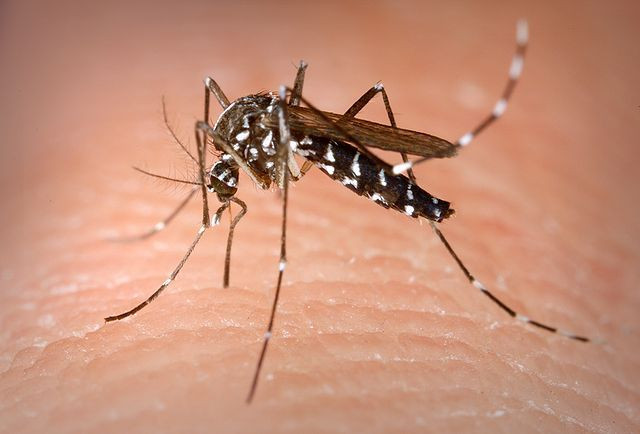
Just as the residents in New Jersey relish their time following the recent invasion of cicadas, they have a new insect to deal with. The Asian tiger mosquito is invading the Garden State and it will eat you alive, even in the afternoon. While most mosquitoes are east to predict when they will start biting, the Asian tiger mosquito is being descried as "extremely aggressive" and an "obnoxious nuisance mosquito."
Unlike more common mosquitoes, The Asian tiger mosquito, known more properly as Aedes albopictus, differentiates itself with its distinctive black-and-white striped legs and body markings. It also is a bit different because unlike most mosquitoes who come at dusk to bite, these aggressive mosquitoes will bite you at any point of the day.
"The Asian tiger mosquito is an extremely aggressive insect that has largely supplanted japonicus since 2008, especially in urban and suburban areas," Eric Green, the mosquito control officer for Passaic County, told The Record.
The Asian tiger mosquito could be more harmful in spreading the West Nile virus due to its constant biting which puts people at more risk, also the mosquito is a known vector for serious viral diseases including dengue fever, eastern equine encephalitis and chikungunya fever.
Pete Rendine, Chief Inspector with the mosquito control division of the Bergen County Public Works Department, said Asian tiger mosquitoes "are the worst, nuisance-wise, because they are adapting to our climate. They are here to stay."
Claudia O'Malley, a biologist for the state's mosquito control division, described the Asian tiger mosquito is "an extremely obnoxious nuisance mosquito." To rid New Jersey of this mosquito, O'Malley also states that "It is impossible to control without concerted efforts by homeowners in eliminating the breeding habitat."
The major source of breeding for the pests are abandoned swimming pools behind foreclosed homes. "There's nobody to maintain these pools, and the mosquitoes just take over," Green said.
The larvae needs about seven days to develop into flying adults, therefore to solve this issue, experts agree to eliminate standing water.
© 2025 Latin Times. All rights reserved. Do not reproduce without permission.





